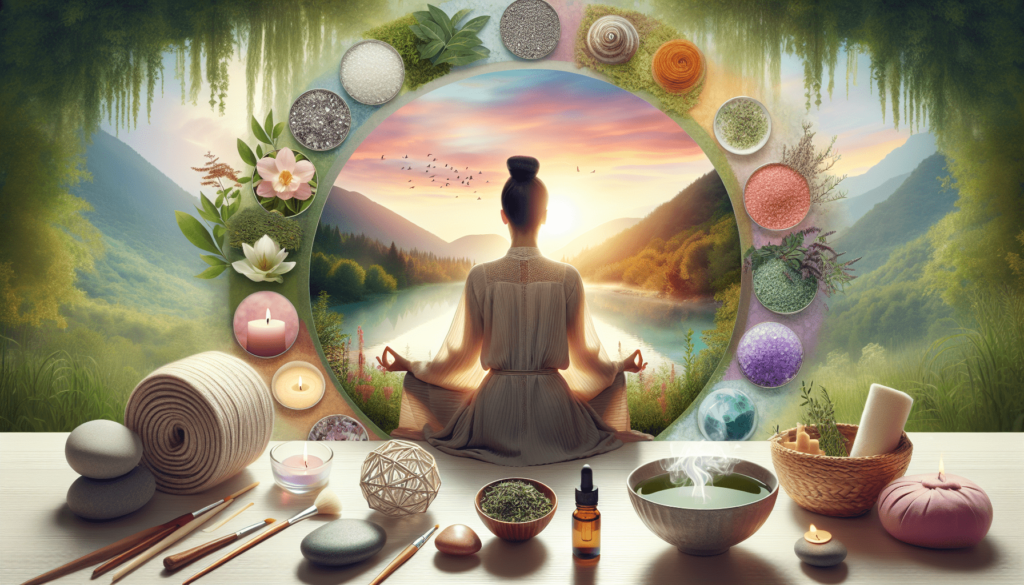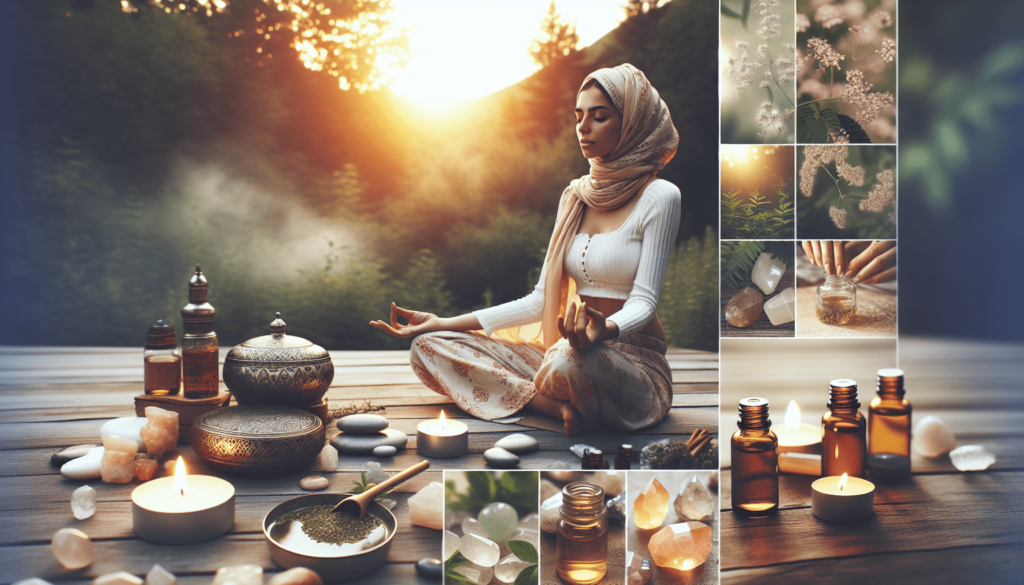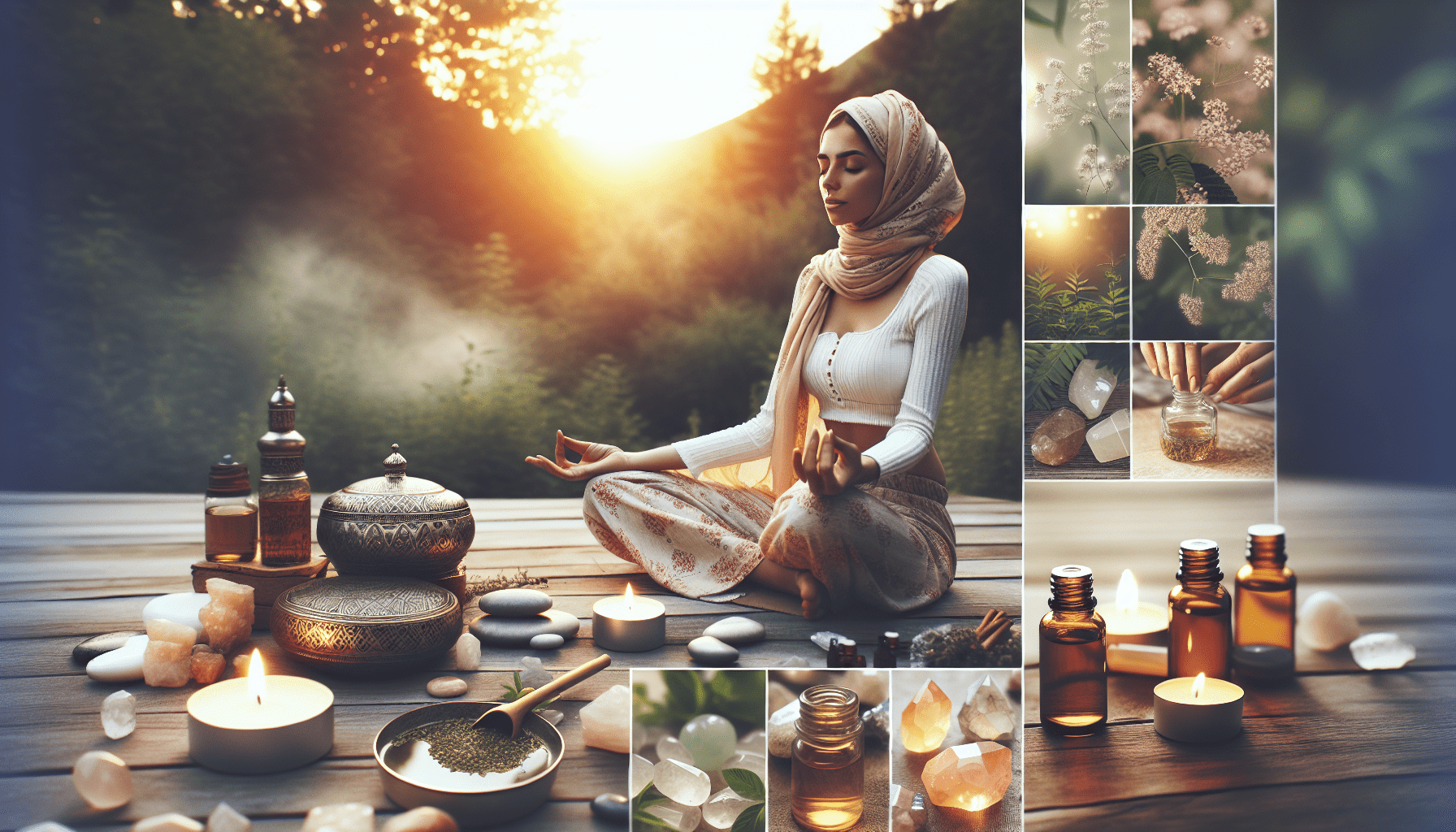Have you been feeling overwhelmed by the stresses of modern life? Are you looking for new ways to cope with the daily pressures and challenges you face? In this article, you will discover various holistic techniques that can help you manage and reduce stress in your life. From mindfulness practices to aromatherapy, there are many natural and effective methods you can incorporate into your daily routine to promote overall well-being and inner peace.

Understanding Modern-Day Stress
Stress is a common experience that affects people of all ages and backgrounds. From work pressures to family responsibilities, there are many factors in today’s fast-paced world that can contribute to feelings of tension and anxiety. It is important to recognize the impact that stress can have on your physical and mental health, as prolonged exposure to stress can lead to a range of serious conditions, including heart disease, obesity, and depression. By understanding the root causes of stress in your life, you can take proactive steps to address and alleviate its effects.
What Is Stress?
Stress is your body’s natural response to any demand or threat. When you perceive a situation as stressful, your body releases a cascade of hormones, including adrenaline and cortisol, that help you respond to the perceived danger. While these stress hormones are essential for survival in threatening situations, chronic stress can have detrimental effects on your health and well-being. Learning to recognize the signs and symptoms of stress in your life is the first step toward managing and reducing its impact.
Holistic Approaches to Stress Management
Holistic techniques focus on treating the whole person, including mind, body, and spirit, rather than just addressing the symptoms of a specific issue. By incorporating holistic practices into your daily routine, you can create a more balanced and harmonious state of being that supports your overall health and well-being. From exercise and nutrition to meditation and energy healing, there are many holistic approaches to stress management that can help you navigate life’s challenges with greater ease and resilience.
Exercise
Physical activity is essential for managing stress and promoting overall well-being. Exercise has been shown to reduce levels of stress hormones in the body, increase the production of endorphins (natural mood lifters), and improve sleep quality. Whether you enjoy yoga, running, or dancing, finding a form of exercise that resonates with you can be a powerful tool for coping with stress. Aim to incorporate at least 30 minutes of physical activity into your daily routine to reap the benefits of exercise as a stress-relieving practice.
Nutrition
Eating a balanced diet rich in whole foods can have a significant impact on your stress levels and overall health. Certain foods, such as those high in sugar and processed ingredients, can contribute to feelings of anxiety and fatigue, while others, such as leafy greens, whole grains, and lean proteins, can support your body’s natural ability to cope with stress. Be mindful of what you eat and choose nourishing foods that promote energy, focus, and resilience in the face of daily stressors.
Meditation
Mindfulness meditation is a powerful practice for reducing stress and cultivating inner peace. By focusing on the present moment and observing your thoughts and emotions without judgment, you can learn to respond to stressors with greater clarity and equanimity. Regular meditation practice has been shown to lower blood pressure, reduce symptoms of anxiety and depression, and improve overall well-being. Find a quiet space, close your eyes, and take a few deep breaths to start a daily meditation practice that can help you manage stress more effectively.
Aromatherapy
Aromatherapy uses plant-based essential oils to promote relaxation and reduce stress. Certain scents, such as lavender, chamomile, and bergamot, have calming properties that can help trigger the body’s relaxation response. You can diffuse essential oils in your home, add a few drops to a warm bath, or apply them topically to experience the soothing effects of aromatherapy. Experiment with different scents to find the ones that resonate with you and create a peaceful environment that supports your emotional well-being.
Creating a Holistic Daily Routine
Incorporating holistic techniques into your daily routine can help you build resilience and thrive in the face of life’s challenges. By creating a mindful and nurturing environment for yourself, you can cultivate a sense of inner calm and balance that supports your overall well-being. From morning rituals to evening practices, there are many ways you can infuse your daily life with holistic techniques that promote stress management and self-care.
Morning Rituals
Start your day with intention by establishing a morning ritual that sets a positive tone for the hours ahead. Whether you enjoy journaling, practicing yoga, or sipping herbal tea, taking time for yourself in the morning can help you center and ground yourself before facing the demands of the day. Consider creating a sacred space in your home where you can engage in spiritual practices, meditate, or simply reflect on your intentions for the day. By starting your day mindfully, you can set the stage for a peaceful and productive day ahead.
Mindful Movement
Movement practices, such as yoga, tai chi, and qigong, can help you cultivate mindfulness and reduce stress in your body and mind. By focusing on your breath and the sensations in your body during movement, you can become more aware of your thoughts and emotions and develop greater resilience in the face of stressors. Experiment with different movement modalities to find the ones that resonate with you and incorporate them into your daily routine to promote relaxation and well-being.
Evening Practices
Create a calming bedtime routine to unwind and let go of the day’s stressors before sleep. Engage in activities that promote relaxation, such as reading, taking a warm bath, or practicing gentle stretches. Consider incorporating aromatherapy into your evening rituals by diffusing calming essential oils or applying them topically to trigger the body’s relaxation response. By creating a peaceful and nurturing environment for yourself in the evening, you can facilitate restful sleep and wake up refreshed and rejuvenated in the morning.
Seeking Support and Guidance
While holistic techniques can be effective tools for managing stress, it is essential to seek support and guidance when needed. Whether you turn to a trusted friend, family member, or professional counselor, having a support system in place can provide you with the resources and encouragement you need to navigate life’s challenges with greater ease and resilience. Remember that asking for help is a sign of strength, not weakness, and that there is no shame in reaching out for support when you need it most.
Supportive Relationships
Building and nurturing supportive relationships with others is essential for managing stress and promoting emotional well-being. Whether you reach out to a trusted friend for guidance, share your thoughts and feelings with a loved one, or seek the support of a professional counselor, cultivating strong relationships can help you feel understood, valued, and supported in times of need. Be open and honest about your struggles and concerns, and don’t be afraid to ask for help when you need it. Remember that you are not alone and that there are people in your life who care about you and want to see you thrive.
Professional Guidance
If you find that stress is impacting your daily life and well-being, consider seeking the guidance of a professional counselor or therapist. A mental health professional can help you explore the root causes of your stress, develop coping strategies, and learn new skills for managing difficult emotions and situations. Therapy can provide you with a safe and supportive space to express your thoughts and feelings, gain insight into your patterns of thinking and behavior, and make positive changes in your life. Remember that seeking help is a courageous step toward healing and growth, and that you deserve to receive the support and guidance you need to thrive.

Embracing Self-Care and Mindfulness
Self-care and mindfulness are essential practices for managing stress and promoting overall well-being. By cultivating a sense of self-awareness and self-compassion, you can learn to respond to stressors with greater ease and resilience, and nurture your inner sense of peace and balance. Remember to prioritize your well-being and make time for activities that nourish your body, mind, and spirit. By incorporating self-care and mindfulness into your daily routine, you can create a more harmonious and fulfilling life that supports your overall health and happiness.
Self-Care Practices
Engage in self-care practices that nourish your body, mind, and spirit and promote relaxation and well-being. Whether you enjoy taking a leisurely walk in nature, reading a good book, or spending time with loved ones, make time for activities that bring you joy and peace. Consider setting aside dedicated time each day for self-care and making it a priority in your schedule. Remember that taking care of yourself is not selfish but essential for maintaining your health and happiness.
Mindful Awareness
Cultivate mindful awareness by paying attention to the present moment and observing your thoughts and emotions without judgment. Mindfulness practices, such as meditation, deep breathing, and body scans, can help you develop greater clarity, focus, and equanimity in the face of stressors. Take time each day to be still, breathe deeply, and connect with your inner sense of peace and calm. By cultivating mindful awareness, you can learn to respond to stressors with greater wisdom and compassion and nurture your inner resilience and well-being.
In conclusion, holistic techniques offer a natural and effective way to manage and reduce modern-day stress. By incorporating practices such as exercise, nutrition, meditation, and aromatherapy into your daily routine, you can create a more balanced and harmonious state of being that supports your overall well-being. Remember to seek support and guidance when needed, prioritize self-care and mindfulness, and cultivate a sense of inner peace and balance in your life. With dedication and intention, you can navigate life’s challenges with greater ease and resilience, and create a more harmonious and fulfilling life for yourself and those around you.

